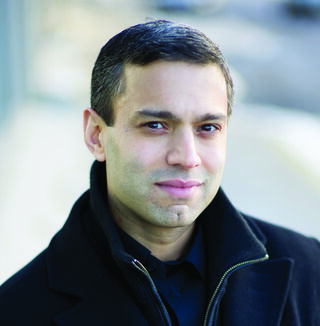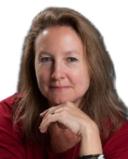Cognition
Why We Need to Think for Ourselves
Critical thinking combats herd mentality. It's time we put our thinking caps on.
Posted June 17, 2020 Reviewed by Gary Drevitch

Question everything. That is the common advice given at commencement speeches to young graduates about to embark into the ‘real world’. Fresh and full of vigor, they are encouraged to reach new heights and make the world a better place. They have been taught critical and analytical thinking skills. Or at least that is the hope. But all too often, as time passes, those same young adults emerge into a world with overwhelming amounts of information. They are then instructed to specialize, focus, and, to some degree, place blinders on to keep their eyes on the prize while filtering out most everything else. What may begin as a journey of exploration soon dwindles down to trying to keep up. As human beings, we tend to develop filters and prejudices to make us feel safe. We adopt belief systems, perhaps as early as childhood, that inform how we view the world. We take what we believe to be true. Anything that counters it is deemed false. And as our thinking narrows, so does our ability to think. Autopilot becomes the norm. We become accustomed to a certain pace of life that equates speed with accuracy, competence, and achievement.
Vikram Mansharamani, a lecturer at Harvard University with several degrees in multiple disciplines and author of Think for Yourself: Restoring Common Sense in an Age of Experts and Artificial, Intelligence has a new release that could not have been more perfectly timed. As experts and talking heads fill the airwaves more than ever during this time of crisis, it is hard to navigate the jungle of information and disinformation flooding every corner of our media universe. Whom should we believe? I sat down with Vikram for a phone chat, bridging countries and experience to get a new perspective on the world as we know it.
The premise of your book is that people underestimate the value of thinking for themselves. What tips do you have for people during this pandemic?
Let me begin by noting the obvious: I am not an epidemiologist or public health expert. I can only triangulate the inputs of multiple experts to come to my own personal conclusions.
As in many things, it really is about the Big picture. Dr. Fauci – should we listen to him? Yes. Should we blindly subject ourselves to him? No. The key to working with experts is to understand the silo in which they live. Once we do, we can decide what framework works best. With the pandemic, there is a very real cost in locking people up in their homes. To be fair, Dr. Fauci is not thinking as much about the diagnostic delays for a mammogram, for instance. And the impact that has on health. Further, many health outcomes are tied to economic capacity. One of the best predictors is your zip code. There are multiple perspectives that generate multiple tradeoffs. We need them to take them all into account to form our own mosaic. It requires leadership to navigate through these dynamics and weigh the relative pros and cons of complex situations. In difficult environments such as ours today, it’s critical we think about these dynamics.
The biggest challenge we face in our expert- and technology-driven society is the ability to zoom out and see the Big Picture. When people make decisions, I encourage them to get multiple perspectives. Employ a devil’s advocate. Have a friend tell you all the reasons your decision is a bad idea. That forces you to see it from a different perspective. Another more productive way is to conduct a pre-mortem exercise. With this strategy, we imagine ourselves in the future and assume we have failed. With the theoretical distance, we can more easily ask ourselves ‘Why did we fail?’ It allows us to take a step back with less emotion and evaluate possible reasons for failure. (Incidentally, doing so may prevent the very failure we imagine!) Another practical application to broaden our perspective is to read physical newspapers and magazines. Why? Because digital sources promote tunnel vision as they are motivated by retaining your attention, not informing you. Reading a physical paper does not involve an algorithmic search. By doing so, we literally scan what has happened in the world on a variety of topics we might never see by doing an online search. This simple approach provides a broader perspective. Personally, I read a hardcopy of The Economist religiously every week, an activity that gives me a global tour of the news at hand. And, powered by that knowledge, I feel I am better able to connect the dots.
Further, it helps me overcome the illusion of objectivity and control that is increasingly common in the social media landscape. The very structure of social media today gives us a false sense that we are in control. We choose who to follow so we think we’re in control of what we see. But more often than not, the algorithms are in actual control. The way social media is usually used, it tends to be a fabulous filter bubble, reinforcing our already-held beliefs. Confirming our existing thinking won’t broaden our perspective, but seeking out alternative views will help. We should all develop the habit of doing so more regularly.
How much media consumption is “responsible”?
I don’t really know. But I do think we need to increase the diversity of our media inputs. We should spend time watching different kinds of media. It is about triangulating and connecting the dots. And unfortunately, many media sources tend to adopt a “leaning” that may be conservative or liberal. As individuals, we can combat those biases by consuming from multiple sources. And I think about the hosts of various news shows that watch and how they may set the focus of the discussion. For instance, one day during middle of the current lockdown, I watched the anchor of a news show ask an eminent economist about the prospects of antibody testing. Sure, the economist was accomplished in his field, but that didn’t justify the expectation that he was expert in all matters. It was like asking your fabulous auto mechanic for suggestions on how to address a toothache. It doesn’t match up.
The Socratic method of questioning everything is a powerful tool. In what ways can people use it to improve their lives?
We are drowning in information, data, and choice, which creates anxiety that an optimal decision exists. We yearn for maximization, optimization, perfection, all of which are a recipe for disappointment. The elusive, non-achievable ideal led Nobel Prize-winning economist Herbert Simon to develop a concept of satisificing. Because we humans are not model-optimizing calculators, we will rarely make the perfect choice that produces the ideal outcome. But we can be objectives-based and switch our framing of the decision. Consider investing: If you seek to maximize returns, you will often be disappointed. But what if you change your focus? Suppose you wanted to invest to reach a specific goal, having adequate funds to pay for a child’s future education. Might you then focus on the probability of achieving that goal rather than some amorphous “maximum” return? A mindset shift such as this can be important in our quest to lead more fulfilling lives.
As a fellow generalist, I have often been viewed as not being able to decide what I want to concentrate on. And yet, the breadth of my interest that has laid the foundation of my career. What can you say to young people who don’t wish to specialize?
There’s a wonderful slogan that appears on Life Is Good t-shirts that I think captures the essence of my feelings on this matter: “Not all who wander are lost.” I’ve spent most of my academic and professional life battling the pressures to specialize. But make no mistake, it’s probably easier to specialize. For the younger folks who want to stay broad and cross silos, I’d recommend they seek positions in fields that require broad thinking. Yes, journalists are assigned a “beat,” but they are given the liberty to ask questions and think broadly. But if specialized positions are the only opportunities available, it’s possible to develop a generalist experience via multiple specialist roles. One can think about a career as a mosaic and the experiences as pieces. With this perspective, we can form a tapestry of personal and professional experiences we seek over time. General Electric used to have an excellent general management leadership development program, which placed their leaders in a constant state of discomfort – and of learning – something which leads to a generalist stance. It was wildly successful. But the key is to realize there is no “one size fits all” advice that works for every person. Donald Rumsfeld captured the usefulness of advice such as what I’m offering perfectly: “All generalizations are false, including this one.” That says it all.
As we have seen, George Floyd’s death mobilized many parts of the world. What thinking needs to take place – like a tipping point – before real change occurs?
Like many, I have been disturbed by the ongoing discrimination in the United States. One of the recommendations I make in my book is for individuals to understand that their perspectives – like all perspectives – are limited, biased, and incomplete. We all need to develop an appreciation for this fact and only by doing so can we overcome our natural, default (literal) self-centeredness and appreciate the views of others. We need to try to see the world through the eyes of others. The current movement is a healthy one, one that seems to be encouraging more empathy and the active adoption of multiple perspectives. I’m hopeful it will lead to real change in how we think.




